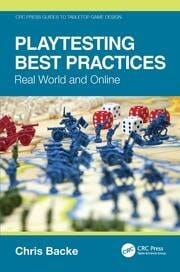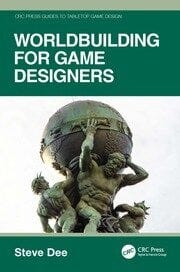There’s been a sizable scandal in the poker world recently at the World Series of Poker, currently being held in Las Vegas.
For those unfamiliar, the WSOP is a series of tournaments varying in entry fees, rules, and prize structure. They range from $300 low stakes events to the $10,000 Main Event, which last year had a first prize of over $10,000,000. Unlike most world championships, anyone can enter an event at the WSOP, as long as they’re willing to pay.
One of those events is called the “Millionaire Maker”, which had a $1,500 entry fee and over 12,000 participants.
After five grueling days of poker it was down to two players: Jesse Yaginuma and James Carroll.
The winner for the event would get $1.2 million, and the second-place finisher $800,000.
However, there was a wrinkle. Jesse had gotten into the tournament under a special ‘golden ticket’ promotion from another poker organization, the WPT. If James won the tournament he would get an additional $1,000,000, for a total of $2.2 million.
To recap - If Jesse won the tournament, he would win $2.2 million, and James would win $800K. If James won, he would win $1.2 million and Jesse would win $800K.
When it was down to ‘heads up’, with just the two players, James had 90% of the chips, and Jesse only 10%. It is highly unusual for someone to come back from that far back - not unheard of, but unusual.
But come back he did. James folded hand after hand, and Jesse built his stack back, ultimately winning the victory, and the extra $1 million prize.
At the final tables of large tournaments like this the players’ cards are visible through table cameras. So spectators could see what players had. And James’ play was immediately called out for being suspect. He folded decent hands and stayed in with bad ones.
Immediately people began to accuse Jesse and James of colluding to make sure that Jesse won, and that James must have been cut in for a piece of the extra $1 million, taking home more than he would have if he had just won the tournament outright.
Would the WSOP let the results stand? Would the WPT pay out the extra million dollars? They both recently announced their decisions but think about what you would do before I let you know.
Personally, I think the results should stand, even if Jesse and James did make a deal, and that both should be paid.
Collusion
Here’s an excerpt from the WSOP rules about collusion:
Collusion is defined as any agreement between or among two (2) or more Participants to engage in illegal or unethical acts against other Participants
In this case I think it’s clear that no other participants were harmed. All other players had been eliminated before they cut a deal.
In the end, the WSOP agreed to split the prize money between the two players (so $1 million each instead of $1.2 million and $800K), and not award the ‘bracelet’ that is given to the winner of an WSOP tourney. The WPT said that they would award the $1 million bonus to Yaginuma. There are rumors that one or both players may be banned from future events, but that has not been settled yet.
Incentives
I wanted to write about this not just because it’s an interesting story, but because it underscores a key element of game design - how we incentivize players.
Game design, at its core, is about creating incentives for players to act in the way that you want. If the incentives are at odds with the behavior and gameplay you want, things will break down.
In this case the incentives were not aligned with the goal of a tournament - for all players to strive to win. Uniquely perhaps, the poorly structured incentive in this case was from an external entity, not the tournament organizer. The WPT placed a ‘metagame’ on top of the normal tournament structure by offering a special ‘bounty’ if a particular player wins.
In The Dragon & Flagon we had two issues with incentives that we grappled with. For those unfamiliar with the game, it’s basically a tavern brawl, where each character has a deck of actions they can do - some actions that were not-so-exciting but necessary or easy to land, like moving or slashing your rapier. Others were flashier - like swinging from a chandelier and throwing mugs of beer.
When you connected on a move you would stun or damage your opponent. If they took too much damage they were knocked out. But the ‘knock out’ rules did not lead to the game play we wanted. We played with a few other systems before landing on the Reputation system. Each player started with the same reputation. Instead of damage, if you hit another player, you stole some of it. At the end of the game, the player with the most reputation won.
This had a few positive effects - first, if someone got down to zero (or very low) reputation, there was no reason to target them (and no player elimination). Since they didn’t have any reputation to take, there was no benefit. Second, given a choice it was always better to go after players that had the most reputation, as it brought them back to the pack.
The other issue was that the basic moves were easier to land, so people ignored the ‘flashy’ moves, particularly beginning players. The game just wasn’t as much fun without the shenanigans you gained from chandelier swinging and table flipping.
We dealt with this by just continually cranking up the VP reward for the flashy moves in our testing until players started doing them. I am convinced that the reward is too big for the actual difficulty in pulling them off, but it feels right to players, and incentivized the behavior we wanted to see.
If your players are not choosing the tracks or tactics you would like, take a look at your incentive structure. You need to change it to guide players in the direction you want.
Tournament Follies
There is a long history of tournaments structuring things so that the incentives are at odds with the desired behavior. I enjoy collecting and examining examples to learn about how things can go off the rails.
There was a scandal at the 2012 London Olympics in Badminton. It was structured similar to the FIFA World Cup, where there were groups, and two teams from each group advanced to an elimination round.
In an early round the Danish team defeated the Chinese, the team favored to win the entire tournament.
During the last games of the group stage two other teams (Korea and another Chinese team) had already qualified for the eliminations, but they realized that the winner of their match would have to face the incredibly dominant Chinese team, who had slipped to a lower seed. The loser would get to play a now higher-seeded team that all were convinced would be easier to beat.
Of course, both teams decided that if they lost their last group match they would have a better chance to win the tournament. And they both played to lose. It is quite the spectacle, to see who could lose faster.
In the end, both teams got suspended from the competition for violating the ‘spirit’ of the competition.
But just like with the poker example, I dispute this. The Olympics aren’t about “winning” every game (yeah, sportsmanship, yadda, yadda). They’re about winning a medal. And they were playing to maximize that. The incentives (better shot at winning a medal) did not align with their desired behavior (try to win each individual game).
Professional sports teams often run into similar issues with ‘tanking’ at the end of the season to get a better draft pick. Leagues try to hard to police it, but it’s tough. The NBA instituted a draft lottery to try to combat this.
And then there’s one of my favorite stories of this ilk - The Caribbean Cup Golden Goal Fiasco of 1994. The story is too long to explain in this already overlong column, but suffice to say that the tournament was structured in such a way so that one team’s only chance of advancing was to score a goal in either net - and the other team realizes it and has to defend both. Hilarity ensues. Here’s a video if this has piqued your interest:
https://www.youtube.com/watch?v=TbuD-6BbnQw
Bottom line: ALIGN YOUR INCENTIVES WITH DESIRED BEHAVIOR. Players will (and should) do what they think will win, not what you think thematically or otherwise makes sense.
New Books!
Two new books have been published in my Guide To Tabletop Game Design series from CRC Press:
Playtesting Best Practices from Chris Backe
Worldbuilding for Game Designers from Steve Dee
Please check them out!







The first Freakonomics book looked at this with respect to Sumo wrestling - huge scandal over there where this national sport of honor turned out to have a bunch of people throwing matches on purpose in the specific situation where a player already qualifying for championships was up against an opponent who needed to win one more match to qualify. Another great example where winning doesn't help one player at all but helps the other a great deal, so they arrange for the player to win who needs it.
Yeah, "spirit of the game" in tournament settings is just absence of rules clarity. Incentives do change depending on the professionalism required of the play. A game can have their mechanical ruleset, and yeah, you could say Sam kingmaking into getting their romantic partner the win will frustrate the rest of the players, but is ultimately inconsequential. Tournaments on the other hand may have life-changing outcomes and therefore are different variants altogether, and I opine should be treated as such, rules included. If they want players to "play to win", they need to stipulate what that means before they throw sanctions.